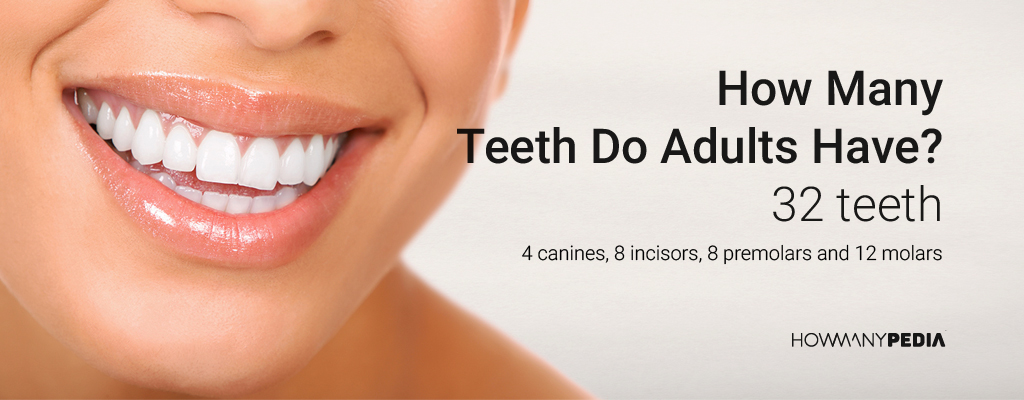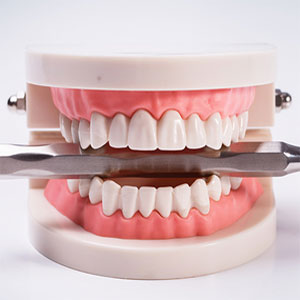How Many Teeth Do Adults Have
How many teeth do adults have? The answer is that an average adult has 32 teeth. When a person talks or smiles, one of the first things that you actually notice in that person would be their teeth. Having a complete set of white teeth can surely be an additional part of a person’s appearance and overall attractiveness. That is why it’s important for young kids and adults to have good oral hygiene in order to make sure that their teeth are healthy and to avoid dental problems that can result in complications. What are the different tips that you can use in order to ensure that they are healthy and strong?
How Many Teeth Do Adults Have

When your baby teeth have fallen out, your adult teeth start to grow in replacement of the old teeth. There are two sets of teeth in a person’s lifetime. These two include the permanent and the deciduous teeth.
For the deciduous teeth, there are 20 teeth and for the permanent teeth, there are 32. The adult teeth have different types, which include incisors, canines, premolars, molars and third molars.
The cost of wisdom tooth extraction actually depends on several factors. There are some dental clinics that may charge relatively cheaper rates compared to other facilities.
The cost would depend on different factors like the experience of the dentist, location, the kind of procedure, and the dental insurance that you have. The price ranges from $140 to $400.
With the varying cost of extraction procedure, you should go to your dentist for a consultation.
The cost greatly differs depending on the kind of procedure that will be used. If it’s just a simple tooth extraction procedure, it does not have to be that expensive. But if there are complications and there are other dental procedures needed then you have to be ready to shoulder higher costs.
Your dentist will examine your teeth and overall dental health.

Once your teeth start to decay, this may result in different problems and complications that may lead to the extraction of the tooth. Among the dental procedures that you would have to undergo depending on the assessment of your dentist is a wisdom tooth extraction.
Since you’ll be given anesthesia, you will never have to worry as to whether this procedure is painful.
It shouldn’t take hours and you just need to have enough rest after. So how do you recover from a wisdom tooth extraction?
After the procedure, it should take about 5 to 7 days before the area stops bleeding. It takes 3 to 4 weeks before everything gets really healed. However, there are cases where in the tooth extraction, the jaw is damaged. When this happens you may be required to have a full recovery which can last up to about 6 months.
After the surgical extraction procedure, there are important steps that you need to do in order to ensure that you have a fast and right recovery.
24 hours after the procedure, you still can expect some bleeding. In order to control the bleeding, you can use a clean gauze and place it on the area where you have had your tooth removed.
Apart from using this technique, you may also want to make use of teabags which are a very effective alternative to stop the bleeding. To avoid clot formation, you may want to use tannic acid.
In the event that the bleeding still continues for an extended time, you should contact your dentist right away. And also keep in mind that after the extraction procedure, you should discuss with your dental surgeon or your dentist as to when you should need to return.
Another thing that you will notice after an extraction is that your face starts to swell. In order to get rid of it, you can just use ice and rub it on your face. Apply it for about 10 minutes and then after 20 minutes you can just remove it. If you experience discomfort, there are different medications that you can use to relieve the pain.
For instance, you might want to try ibuprofen. Most dentists will prescribe certain pain relievers to their patients to ensure that they will not feel any pain or discomfort.
You may be prescribed to take antibiotics to make sure that there will be no infection. Just make sure that you follow this prescription and continue taking the medicine prescribed to you.
Teeth Whitening for Sensitive Teeth

Having a nice set of white teeth is definitely a plus both for men and women. There are various products that you can find in the market with the promise of having white teeth.
But apart from having these products, you can also talk to your dentist about the available whitening procedure for your teeth. For those who have sensitive teeth, how does it feel to undergo this procedure?
Teeth whitening can be a bit painful, especially if you have sensitive teeth.
Whether you’re using a product, there are ways for you to manage this concern. First is that you need to know the factors that can affect the level of sensitivity.
These factors include application time and peroxide level. Another important tip is that you should avoid extreme temperatures.
After whitening, you should stay at a mild temperature. This is a very important tip so that you can avoid having to experience a painful teeth whitening procedure. Remember that even mild products can also cause whitening sensitivity for some.
If you are still having problems, it’s definitely better to talk to your dentist about it. There are several dental treatments and procedures for you to have white teeth.
Sources:



